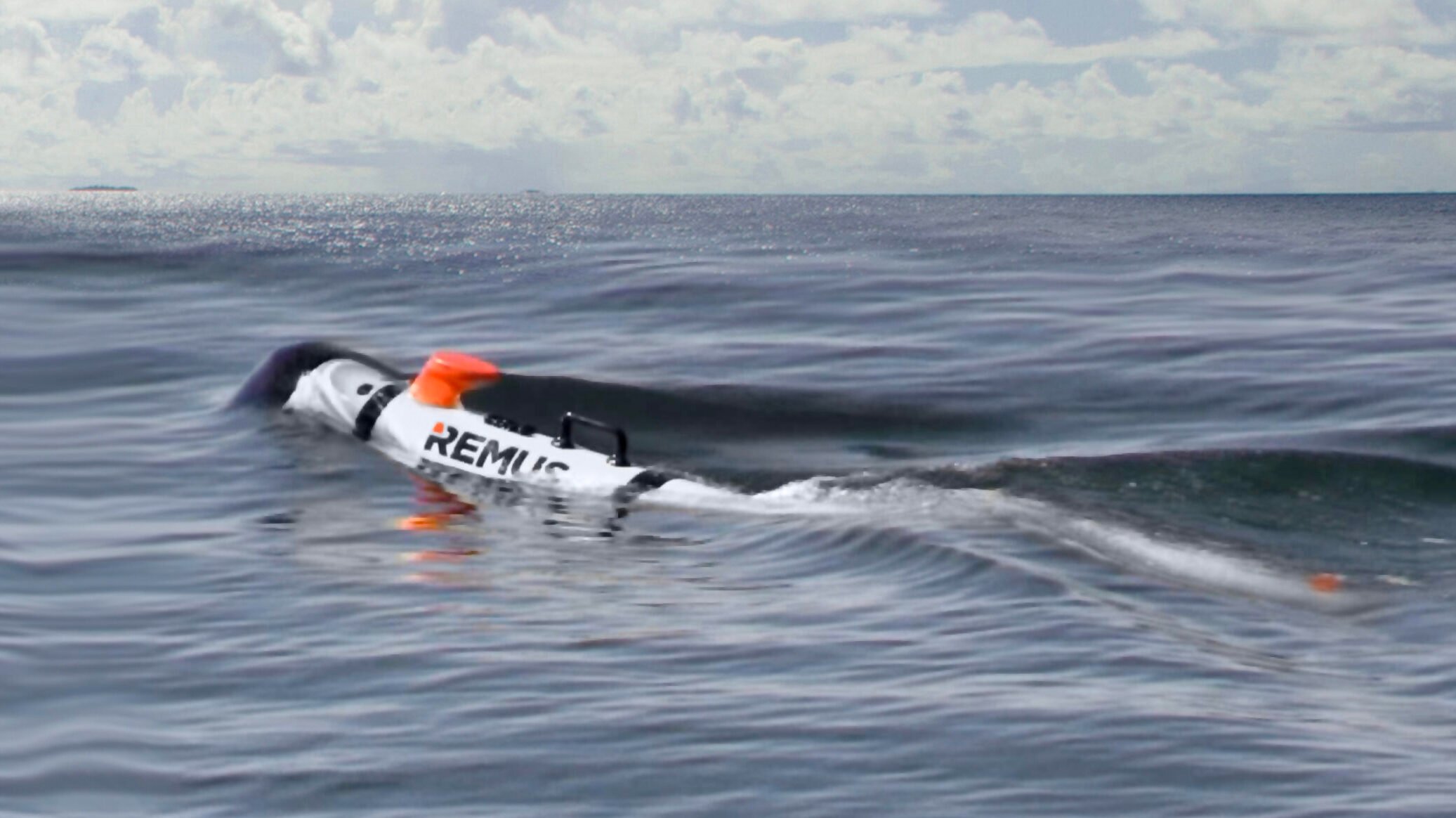
The Navy plans to purchase several lots of HII’s Remus 300 UUVs for its Small Unmanned Undersea Vessel program. (Photo courtesy of HII.)
WASHINGTON — HII has unveiled the latest model for its Remus series of unmanned undersea vehicles, the Remus 130, aimed at missions such as data collection, offshore oil and gas exploration, search and rescue, and mine countermeasures operations.
“The Remus 130 is built on the same proven technology platform as the Remus 300 and offers customers a highly capable vehicle at reduced cost and risk,” said Duane Fotheringham, president of the Mission Technologies’ Unmanned Systems business group. “We are excited to introduce this latest generation of the Remus 100 that will help drive commonality across the fleet and provide our customers with more flexibility to address their mission needs.”
The 130 and 300 are both classed as small UUVs, meaning they are seven-and-a-half inches in diameter and between six to 12-feet long. The Remus 300 is also the commercial system HII is using to develop and manufacture the US Navy’s new Lionfish UUV.
The Remus UUV product line was initially developed by Hydroid, based in Pocasset, Mass. and acquired by HII in March 2020. The initial UUV was sold to the United Kingdom’s Royal Navy in 2001.
In a phone interview with Breaking Defense from London, where HII was premiering the new Remus 130 at Oceanology International, Fotheringham said the original Remus 100 was built “fully integrated,” meaning it lacked the modular design characteristics that the US Navy and other commercial customers now look for in unmanned systems.
“We’ve been able to modularize the vehicle and take us towards open architecture,” he said. “In the interim, we also created the Remus 300 in response to the Navy’s next-generation small UUV program.”
In the 300, “the propulsion is separate from the navigation is separate from the battery is separate from the main electronics,” he added.
In addition to unveiling the 130, HII also announced this week it received an order from an unnamed customer for the Remus 620, which the company debuted in November 2022. That customer is the second order behind the US National Oceanic and Atmospheric Administration, which purchased two 620s in August 2023.
Shipbuilder Austal USA names Michelle Kruger as new president
Kruger had been serving as interim president since former chief Rusty Murdaugh resigned last spring.



























